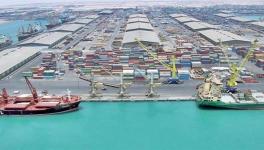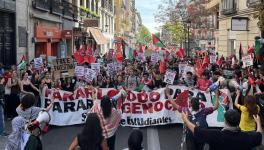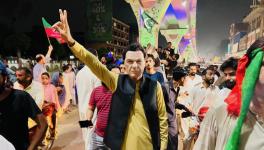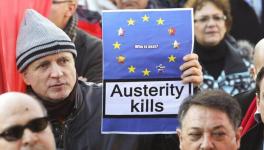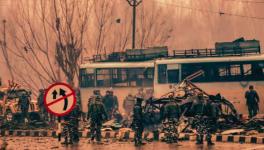Understanding the Economic Roots of Political Turbulence in Pakistan
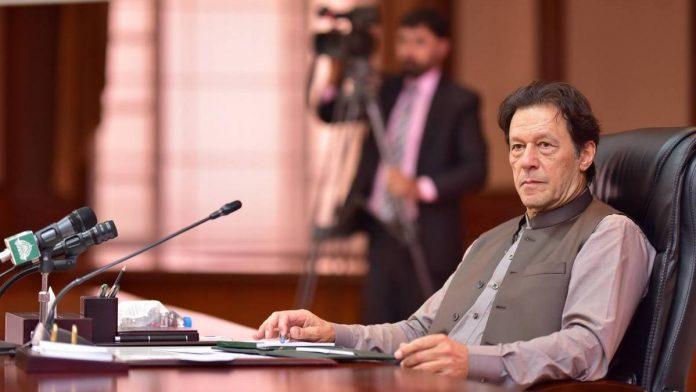
Image Courtesy: Facebbok
On 15 June 2021, the democratic veneer of Pakistan’s Parliament peeled off as lawmakers from the treasury and the Opposition hurled abuses and threw copies of official budget documents at each other. The Lower House of Parliament, the National Assembly, was convened to hold a debate on the 2021 Budget which was presented by finance minister Shaukat Tareen. The treasury benches began a noisy protest when the leader of the Opposition, Shahbaz Sharif, attempted to make the customary speech to open the forum for debate.
Within no time, the House turned into a battlefield—Ali Nawaz Awan, special assistant to Prime Minister Imran Khan, launched a vulgar cannonade, letting fly the choicest abuses like he was in a street fight. The Speaker of the National Assembly, Asad Qaisar, sat back and allowed the situation to get ugly when it was palpably clear that the Treasury had engineered the situation. He sanctioned four Opposition members and only three from the government when many more vituperative miscreants were easily identified amongst the Treasury benches.
The parliamentary pandemonium serves as an embarrassing symbol of disorder within Khan’s government. When Khan launched his campaign against the traditional parties in 2018, he won over thousands of young middle-class professionals and students who hoped that the family fiefdoms—the Bhuttos’ Pakistan People’s Party (PPP), the Sharif brothers’ Pakistan Muslim League (PML-N) and the Jamaat-Ulema-Islam (JUI), formerly led by Maulana Mufti Mahmood and now by his son Maulana Fazl-ur-Rehman—could be sidelined or defeated.
The once all-powerful PPP is paying the price for its corruption: its power is now limited to the Zardari-Bhutto stronghold in Sind province. The PML-N, the second-largest party in the National Assembly, lost 84 seats in the last election. Now, it is Khan’s party—Pakistan Tehreek-e-Insaf (PTI)—which is trying to remain electorally viable, battling explosive crises on multiple fronts. The economic scene has become tumultuous. The PTI administration’s utter pusillanimity toward the International Monetary Fund (IMF) has lain to rest Khan’s ambitious promise of an “Islamic welfare state”.
According to Ammar Ali Jan, an IMF loan of $6 billion over three years has wreaked havoc on the Pakistani economy. GDP growth rate cratered to -0.4%, the first time it had fallen below negative in seven decades. The devaluation of the Pakistani currency created massive inflation, rising from 3.93% in 2018 to 10.74% by 2020. Brute austerity measures—such as a whopping 40% budgetary cut to higher education—are being remorselessly executed by the PTI functionaries. The privatization of healthcare was initiated in 2020—in tandem with the reduction of subsidies on utilities as well as the cancellation of the yearly increments of wages for public sector employees.
Inability to walk the talk on the economic reform agenda has lent a degree of legitimacy to the Opposition’s unceasing criticism of the Khan government. In September 2020, Opposition parties formed the Pakistan Democratic Movement (PDM)—a collection of conservative, liberal, ethno-nationalist, and Islamic political parties—claiming that they were seeking to “restore true democracy” by forcing the county’s army out of politics. Their goal was to pressure it to cease support for Khan and eventually submit to civilian supremacy. The Pakistani military denies participating in politics, but four army generals have ruled the country of more than 220 million people for nearly half of its history.
The PDM has been unable to mount an effective challenge to the PTI regime. Internal weaknesses have emerged as major component parties appear to have given up on mass resignations from Parliament and the much-touted plan to storm Islamabad to force Khan’s resignation. Instead of these open offensives, some opposition parties made plans to contest elections for the Senate, the Upper House of Parliament elected by the country’s four provincial assemblies, and the Lower House. Soon, the PPP and the Awami National Party (ANP) quit the PDM, significantly curtailing the effectiveness of the alliance.
Growing fragmentation exacerbated a fundamental flaw of the PDM: it does not promote a meaningful alternative to the existing reality. Despite all its loud rhetoric, the PDM remains wedded to the military apparatus. Shahbaz, for example, has been keen not to take on the establishment. His strategy has been to work with the military, even after the deep state decided to support Khan in the last election. For Shahbaz, bringing PML-N back in Punjab is the priority. Islamabad can wait; Lahore cannot.
Given the numbers and the military’s blessing, Shahbaz can turn the tide in Punjab. With a forward group within the PTI led by those who are loyal to Jahangir Tareen and a few others, Shahbaz can knit a coalition in Punjab. Tareen, once a close friend of Khan, and an important member of the PTI, has formed a group of like-minded parliamentarians belonging to the Punjab Assembly and the National Assembly within the PTI.
The “JKT group” has more than 30 members, which makes it important for the PTI government to keep it on the right side; otherwise, it would not be easy for the government to survive. Tareen, a business tycoon, is accused of a huge sugar scandal that relates to fixing sugar prices by the sugar cartel as well as of money laundering. This pressure group has been able to secure meetings with Khan and the chief minister of Punjab, Usman Buzdar. It has been assured that their reservations would be addressed. But the government has also made it clear that Tareen would not be given undue favours.
The PDM’s vacuity in terms of a programmatic vision is encapsulated in the figure of JUI’s Fazl—chief of the coalition. Traditionally, the JUI considered itself anti-imperialist and was involved in coalition governments with radical secular parties during the seventies, under the leadership of Mahmood. It had opposed the military dictatorships of both Ayub and Zia; Mahmood had attended Peace Conferences in both Moscow and Beijing. After his death, his son inherited the party and continued his father’s policies, working closely with Benazir Bhutto’s government in the mid-90s.
However, Fazl changed according to the new times. In return for his active support for Benazir, he succeeded in procuring a lucrative diesel franchise, which covered large parts of the country—and, after the Pak-Taliban victory, most of Afghanistan as well; it earned him the sobriquet of Maulana Diesel. The bearded Diesel soon became the lynchpin of a mullah-military nexus. A close aide of Benazir’s Interior Minister General Naseerullah Babar—architect of the Taliban triumph in Kabul—Fazl’s strong links with the Taliban leadership always allowed him to trounce his local Jamaat-e-Islami (JI) rivals, whose pawn Gulbuddin Hekmatyar had been sidelined by the new student clerics in Kabul.
After the US assault on Afghanistan, the bulk of the Taliban took refuge in the hills along the Pakistani border. Many of the returnees swelled the ranks of the JUI and other Islamist parties, and the JUI took the lead in organizing mass rallies against the “foreign occupiers”. Fazl took the lead in electorally uniting the various Islamist parties, thus creating the Muttahida Majlis-e-Amal (MMA). Multiple reports claimed that Musharraf helped the Islamist coalition win more than 50 National Assembly seats in the 2002 election by rigging the polls to ward off international pressure on reinstalling a democratic setup in Pakistan.
In 2018, MMA—after lying dormant for years—announced its revival with a focus on the implementation of Sharia and the defeat of secularism, with the eradication of corruption thrown in for good measure. Fazl said that “religious forces are being victimized” and that the only solution was the “true Islamization” of Pakistan. The story of the rotund Diesel shows how the PDM—far from heralding a new age of democracy and economic security for Pakistan—represents an opportunist mishmash of radical Islamism, corruption, and acquiescence to the military rule. Nothing beneficial for the impoverished masses of Pakistan seems to be on the horizon as intra-elite struggles continue in the corridors of powers.
The author is an independent researcher and freelance writer based in Aligarh. The views are personal.
Get the latest reports & analysis with people's perspective on Protests, movements & deep analytical videos, discussions of the current affairs in your Telegram app. Subscribe to NewsClick's Telegram channel & get Real-Time updates on stories, as they get published on our website.









